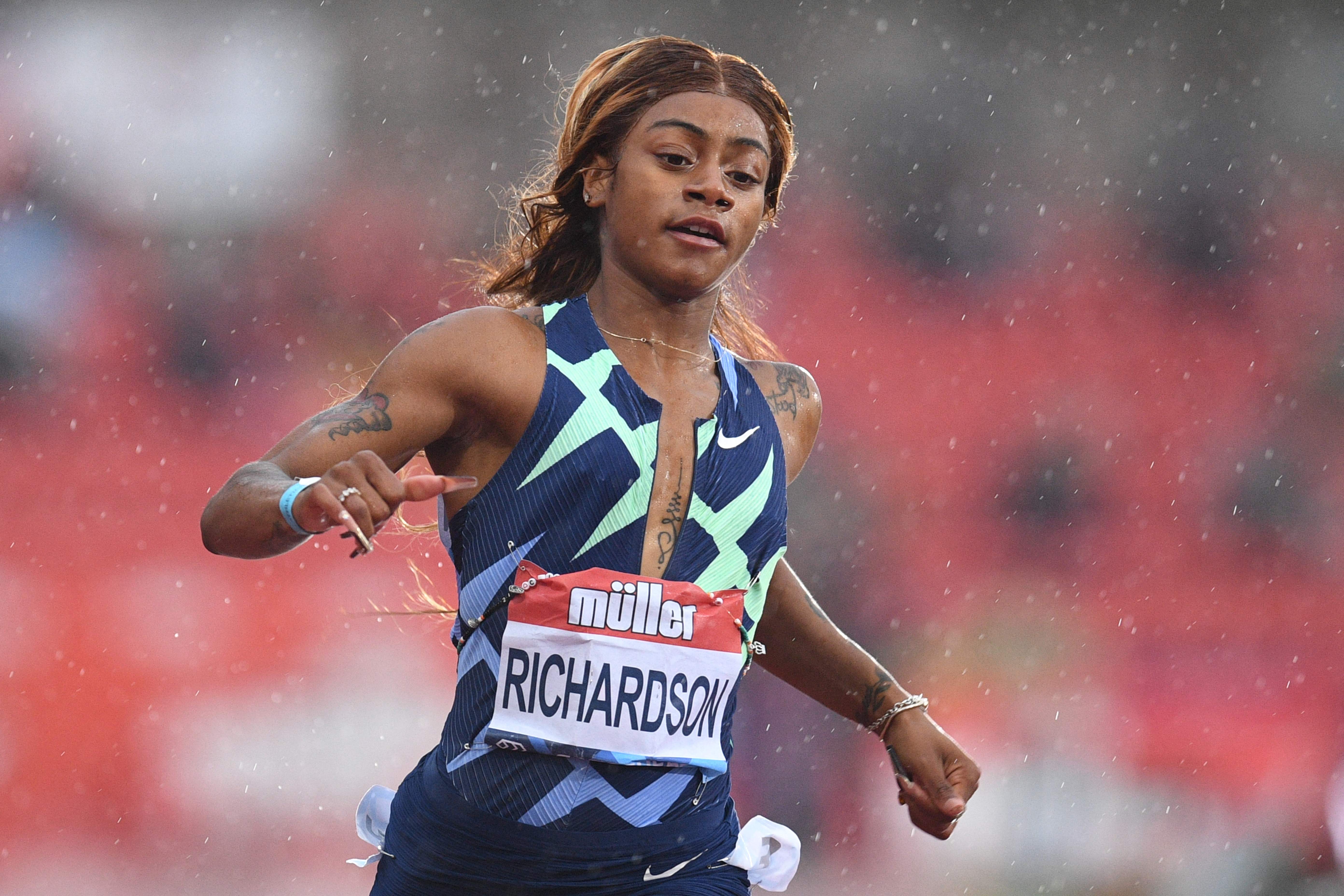AOC hits out at ‘racist and colonial policy’ behind Olympic ban for Sha’Carri Richardson’s marijuana use
‘The IOC should reconsider its suspension of Ms Richardson and any athletes penalized for cannabis use,’ Ms Ocasio-Cortez says

Congresswoman Alexandria Ocasio-Cortez has spoken out against the International Olympic Committee’s anti-doping policy after runner Sha’Carri Richardson was banned from competing in the Tokyo Summer Olympics for using marijuana.
“The criminalisation and banning of cannabis is an instrument of racist and colonial policy,” the Democratic lawmaker wrote on Twitter. “The IOC should reconsider its suspension of Ms Richardson and any athletes penalised for cannabis use.”
Ms Richardson, 21, was issued a 30-day suspension from the US Olympic team after testing positive for THC, the main chemical in marijuana, in her blood test from the US Olympic Trials,
The ban would run through 27 July, meaning the runner will be unable to compete to see if she’s the world’s fastest female. But the ban would allow her to compete in 4X100-metre relay at the Olympics.
Ms Richardson won the 100-metre dash at a time of 10.86 seconds during the US Olympic Trials last month, which was held in Eugene, Oregon.
The athlete’s ban was announced by the US Anti-Doping Agency on Friday, and it instantly sparked widespread outrage among athletes, celebrities, politicians, and spectators.
“In 2021, at a time when marijuana use is legally accepted in a growing number of US states and around the world, it makes exactly zero sense for regulators to continue to take punitive actions against athletes like Sha’Carri Richardson or anyone else who chooses to consume cannabis in their off-hours,” Erik Altieri, executive director of the advocacy group NORML, said in a statement.
US Anti-Doping Agency (USADA) CEO Travis Tygart said that the anti-doping rules were clear but added it was “heartbreaking” to see what was happening to Ms Richardson.
“The rules are clear, but this is heartbreaking on many levels; hopefully, her acceptance of responsibility and apology will be an important example to us all that we can successfully overcome our regrettable decisions, despite the costly consequences of this one to her,” Mr Tygart said in a statement.
The World Anti-Doping Agency (WADA) relaxed its threshold for what constitutes a positive marijuana test by raising it from 15 nanograms per milliliter to 150 nanograms per milliliter following the 2012 Summer Olympics in London. This decision was in an effort to detect marijuana usage near competition rather than days or weeks before.
On Friday morning, Ms Richardson expressed regret for smoking marijuana ahead of the US Olympic Trials.
“I apologise,” Ms Richardson said on NBC’s Today show. “As much as I’m disappointed, I know that when I step on the track I represent not only myself, I represent a community that has shown great support, great love ... I apologise for the fact that I didn’t know how to control my emotions or deal with my emotions during that time.”
The athlete said she knew the rules but used marijuana after finding out her biological mother had died.
“We all have our different struggles, we all have our different things we deal with, but to put on a face and have to go out in front of the world and put on a face and hide my pain,” Ms Richardson said. “Who are you? Who am I to tell you how to cope when you’re dealing with a pain or you’re dealing with a struggle that you’ve never experienced before or that you never thought you’d have to deal with. Who am I to tell you how to cope? Who am I to tell you you’re wrong for hurting?”
She was aiming to be the first American female to win the Olympic 100-metre title since Gail Devers in 1996.
Join our commenting forum
Join thought-provoking conversations, follow other Independent readers and see their replies
Comments
Bookmark popover
Removed from bookmarks